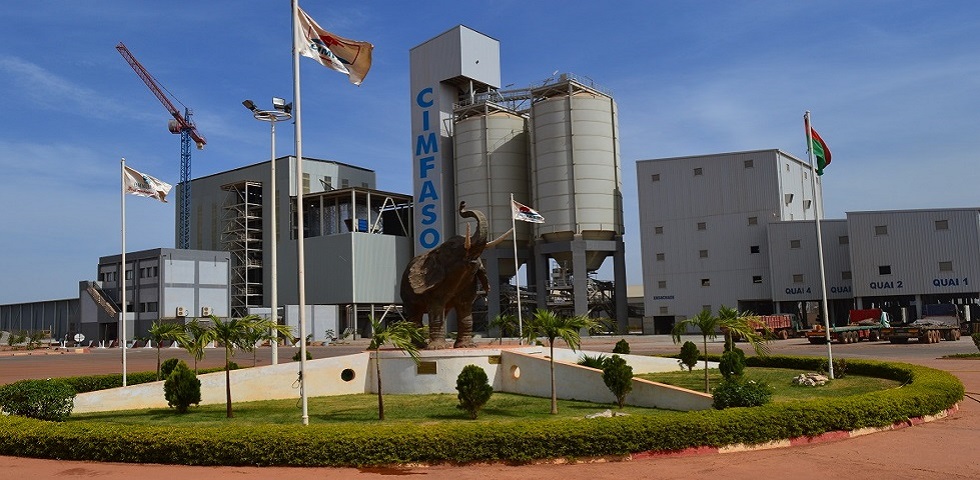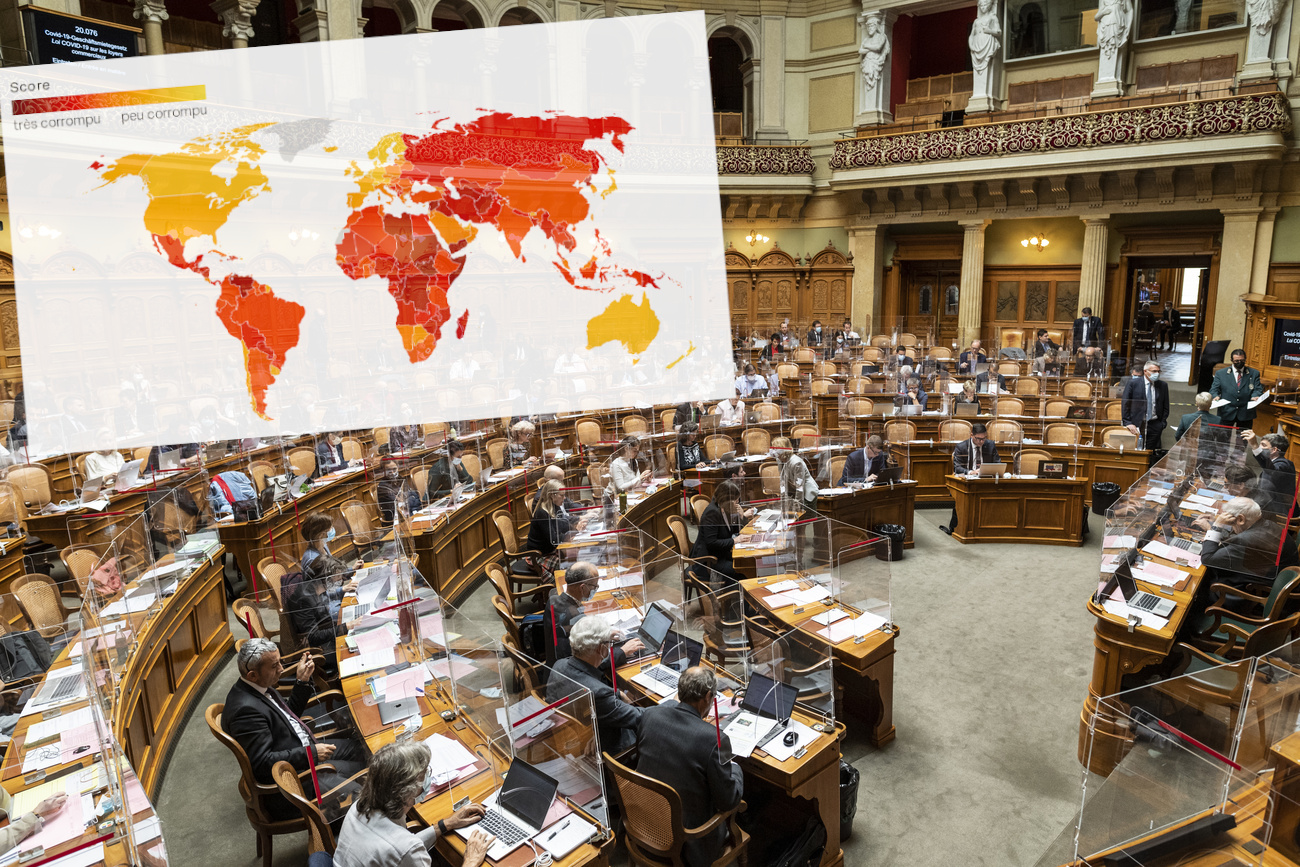
Burkinabe businessman denied compensation for frozen accounts

Inoussa Kanazoé claims he lost up to €30 million (CHF32.8 million) when his Swiss account was frozen for two-and-a-half years while he was investigated on fraud and corruption suspicions. A Geneva court has rejected his appeal for compensation.
Inoussa Kanazoé, a businessman with close links to the brother of Burkina Faso’s former president Blaise Compaoré, made his fortune through the import and export of foodstuffs, petrol, and cement. He is notably the owner of CimFaso (Cimenterie du Faso), which is a partner of Swiss company Holcim via its subsidiary Socimat.
However, Kanazoé’s success story is not without its “shady areas”, as the Jeune AfriqueExternal link weekly writes.
“According to some leaked information, the origins of the spectacular success can be traced to the northern Ivory Coast, where [Kanazoé] was the main supplier of consumer products to the rebels,” the magazine writes.
In April 2017 the situation worsened for the businessman. After an investigation, prompted by a former business associate, Kanazoé was arrested and held in preventative detention in Burkina Faso. According to a judgement by the Geneva Court of Justice, Ouagadougou authorities at the time suspected Kanazoé of “forgery and the use of forged documents for trade, tax fraud, aggravated breach of trust, and money laundering”.
Founded by investigative journalists Marie Maurisse and François Pilet, Gotham CityExternal link is a newsletter focusing on legal oversight and economic crime.
Each week Gotham offers subscribers reports about fraud, corruption and laundering cases linked to the Swiss financial sector, based on publicly accessible legal documents.
Each month, it selects one of its articles, which it then expands and offers free of charge to SWI swissinfo.ch readers.
The Swiss-based company MIXTA Négose was moreover a key element of the investigations – Kanazoé allegedly used this Geneva firm to overcharge CimFaso for raw materials sold for the manufacture of cement.
The case was dismissed a year later. According to the Courrier ConfidentialExternal link investigative site, however, this dismissal was itself overturned in February 2019 by an appeals court in Ouagadougou, which ruled that the charges of “complicity in money laundering and the forgery of documents for trade” were indeed grounds to bring Kanazoé back before judges.
Contacted by Gotham City, Kanazoé’s Burkinabe lawyer Salifou Dembélé did not respond to questions about the state of these legal proceedings.

More
Transparency International: in fight against corruption, Switzerland can do better
Money Laundering and bribery
The accusations and investigations also led to Switzerland getting involved. In mid-2017, the country’s Money Laundering Reporting Office (MROS) contacted Geneva’s public prosecutor about accounts held by Kanazoé in three separate banks. It could not be excluded, the MROS said, that “some or all” of the CHF33 million in these accounts had come from the CimFaso overbillings mentioned above.
As a result, the public prosecutor froze the accounts and opened preliminary proceedings into Kanazoé for “money laundering and fraud, and even the bribery of foreign officials”. The case was later widened to include one of Kanazoé’s former business associates, as well as an oil trading company operated by this associate.
Swiss prosecutors suspected the pair of having – from 2012 to 2016 – concluded contracts with state companies in Burkina Faso and Nigeria by “fraudulently deceiving them as to quantities delivered and/or the price billed/paid”. On top of this, they “possibly bribed certain employees from these state companies in order to achieve their aims”. The illegal profits were allegedly transferred to a Swiss bank account.
‘Very difficult’ mutual assistance
The Geneva investigation came to nothing, however, and was closed in November 2020, the public prosecutor’s office told Gotham City. According to a judgementExternal link dated December 4, 2019, an appeals court in the southwestern Swiss city said that despite “an unclear situation that throws possible suspicion on certain movements in the bank relationship in question […] no element in the file is enough to consider that some of the money deposited […] for the (in)direct benefit of the appealing party could have been the result of fraudulent deception […] made possible by potential corrupt actions”.
In particular, CimFaso – potentially an injured party in all this – has not filed an official complaint, and “it does not appear that any proceedings have been opened in Burkina Faso or in Nigeria in relation to these potentially corrupt activities”, the court decision says. On top of this, mutual assistance on legal affairs with Burkina Faso is described by the justice ministry as “very difficult”.
Compensation claim
For Kanazoé, however, this wasn’t the end. He claimed that the two-and-a-half-year freezing of his Swiss accounts led to him suffering “considerable economic and commercial damage”: one of the accounts in particular, which he used for currency trading and where most of his Swiss assets were kept, lost as much as €1 million per month after the bank wound down his positions, he said.
The Geneva public prosecutor’s office, however, summarily refused Kanazoé’s complaint, saying that “the causal link between the criminal procedure and the alleged losses has not been established”.
Geneva’s Court of Justice was also not swayed by the argument. In a recent judgementExternal link of May 6, 2021, the court’s appeals chamber said Kanazoé had taken “risky positions” on foreign exchange markets to the tune of $400 million, on a line of credit of $40 million. He had made “varying profits” over a period of three years, the court said, and while the funds he had initially transferred to the account in question came to €20.5 million, its value at the time of being blocked was CHF27.3 million”.
“In the circumstances, it cannot be assumed that, based on the ordinary course of events and life experience, a fortune is expected to double over the course of two and a half years.”
The court concluded by stating that the potential profits and financial costs suffered by Kanazoé are “the consequence of complaints filed in Burkina Faso, in the context of commercial relations between opposing local businessmen to which he belonged there, and it is this context which is the cause of his situation. The damages, if they exist, arise from that […]”.
The judgement handed down by the Geneva Court of Justice does not mention by name Kanazoé’s Swiss lawyers, who we were unable to contact.
Translated from French by Sophie Douez; edited by Domhnall O’Sullivan

In compliance with the JTI standards
More: SWI swissinfo.ch certified by the Journalism Trust Initiative




























You can find an overview of ongoing debates with our journalists here . Please join us!
If you want to start a conversation about a topic raised in this article or want to report factual errors, email us at english@swissinfo.ch.